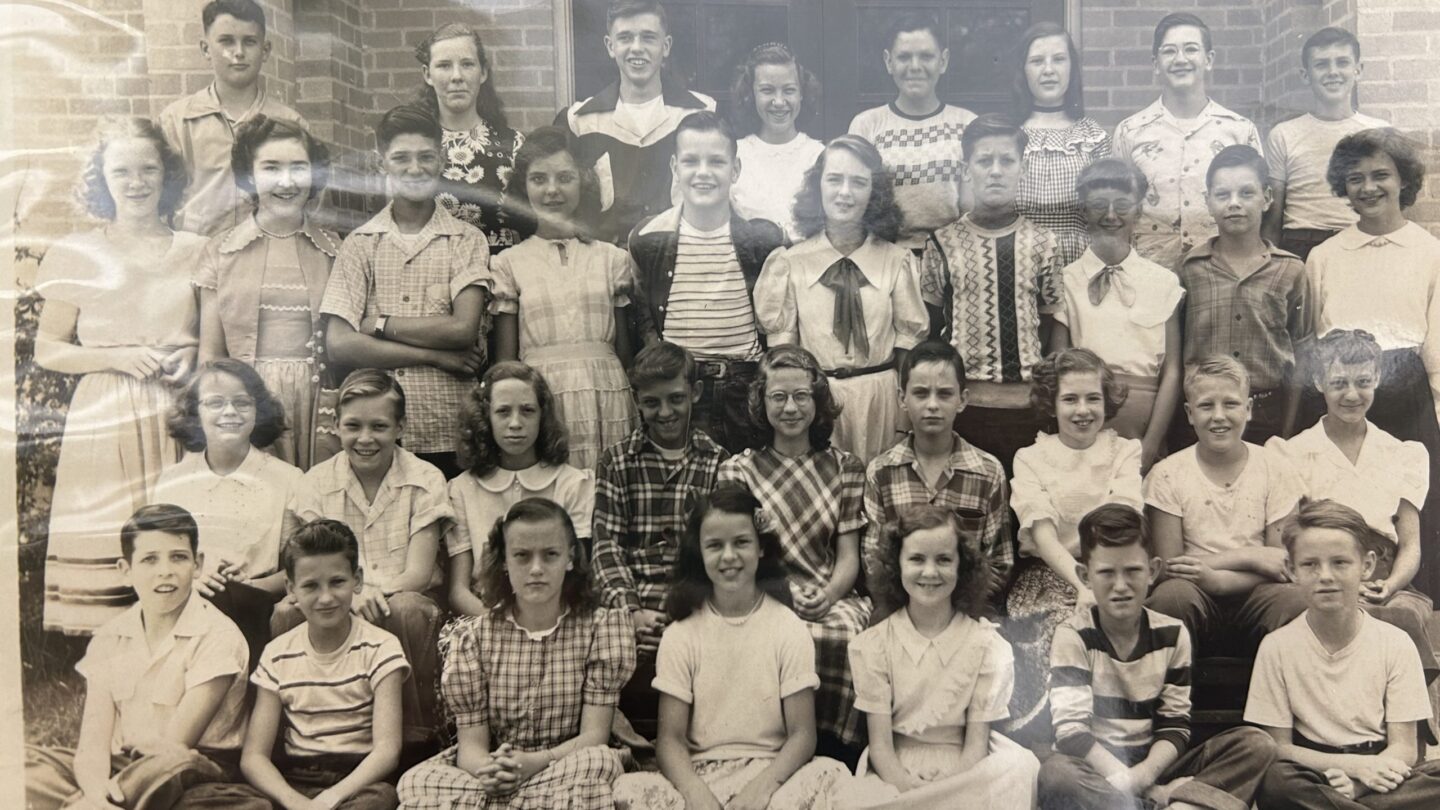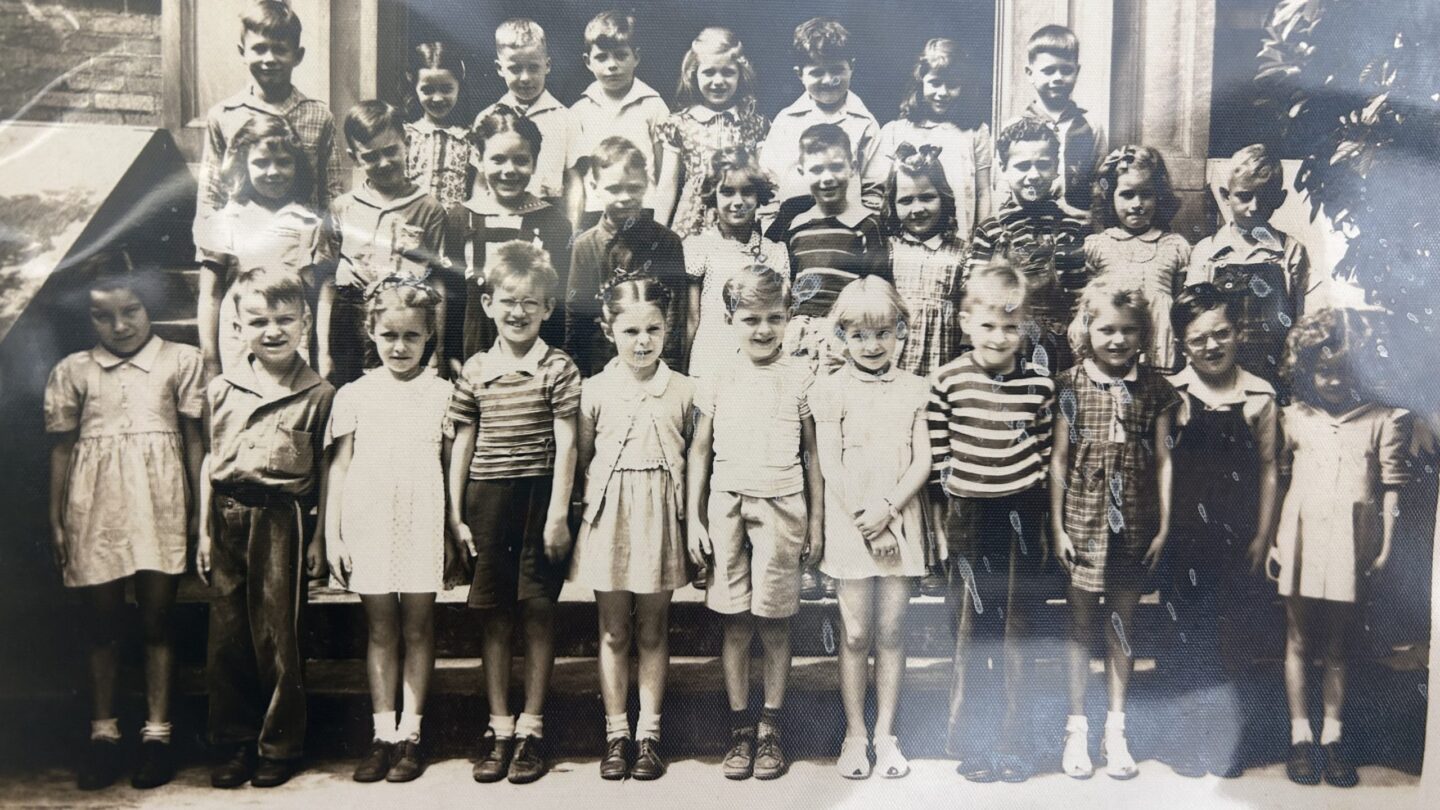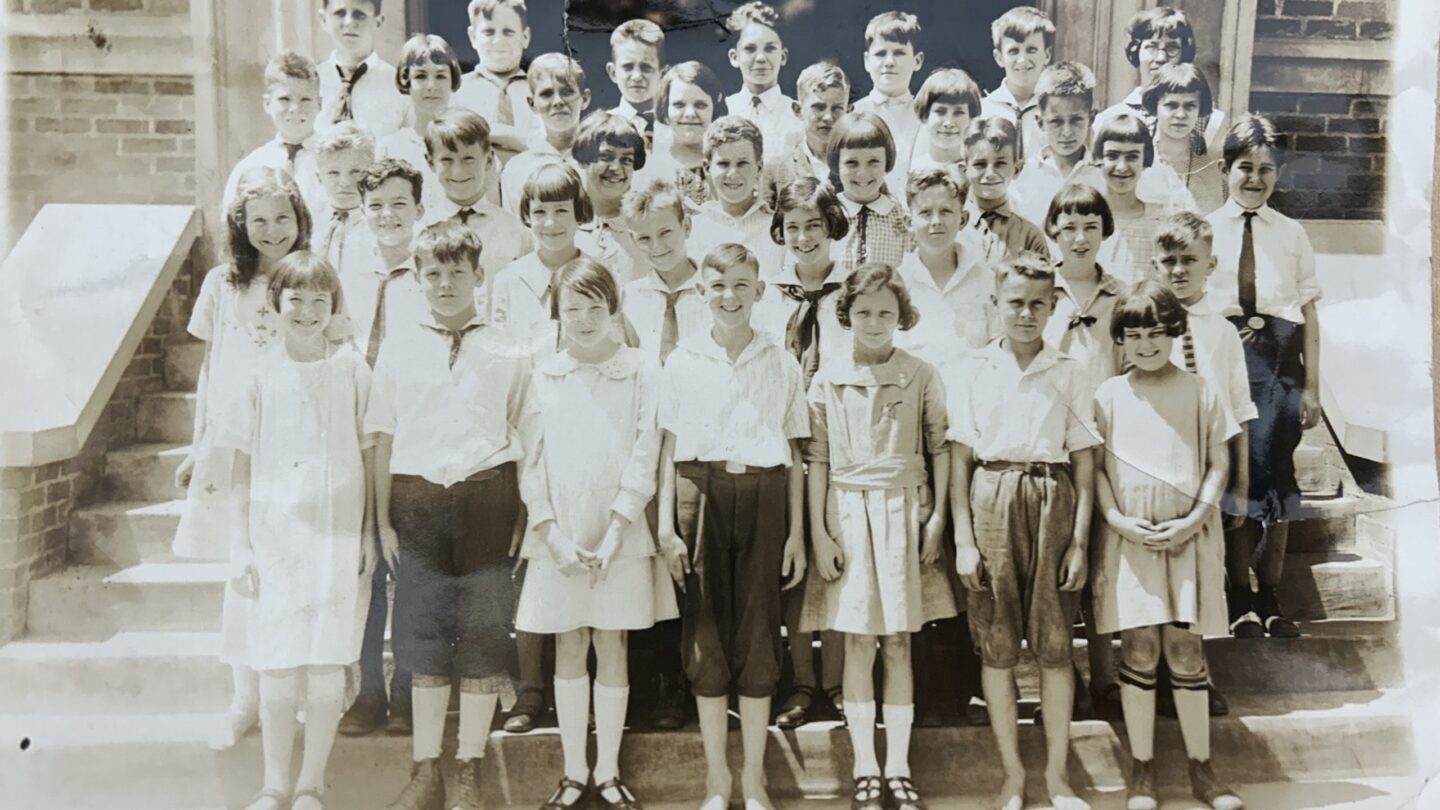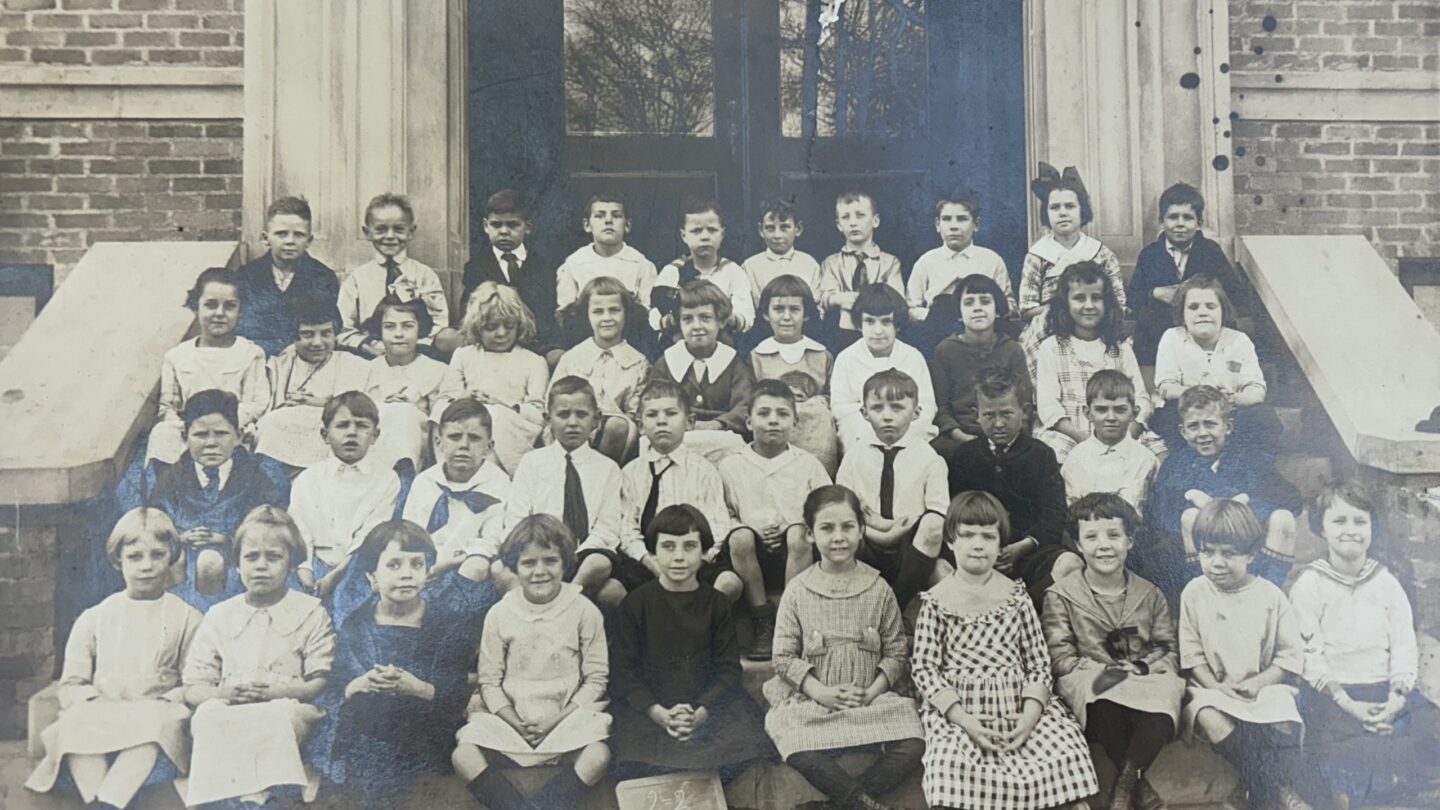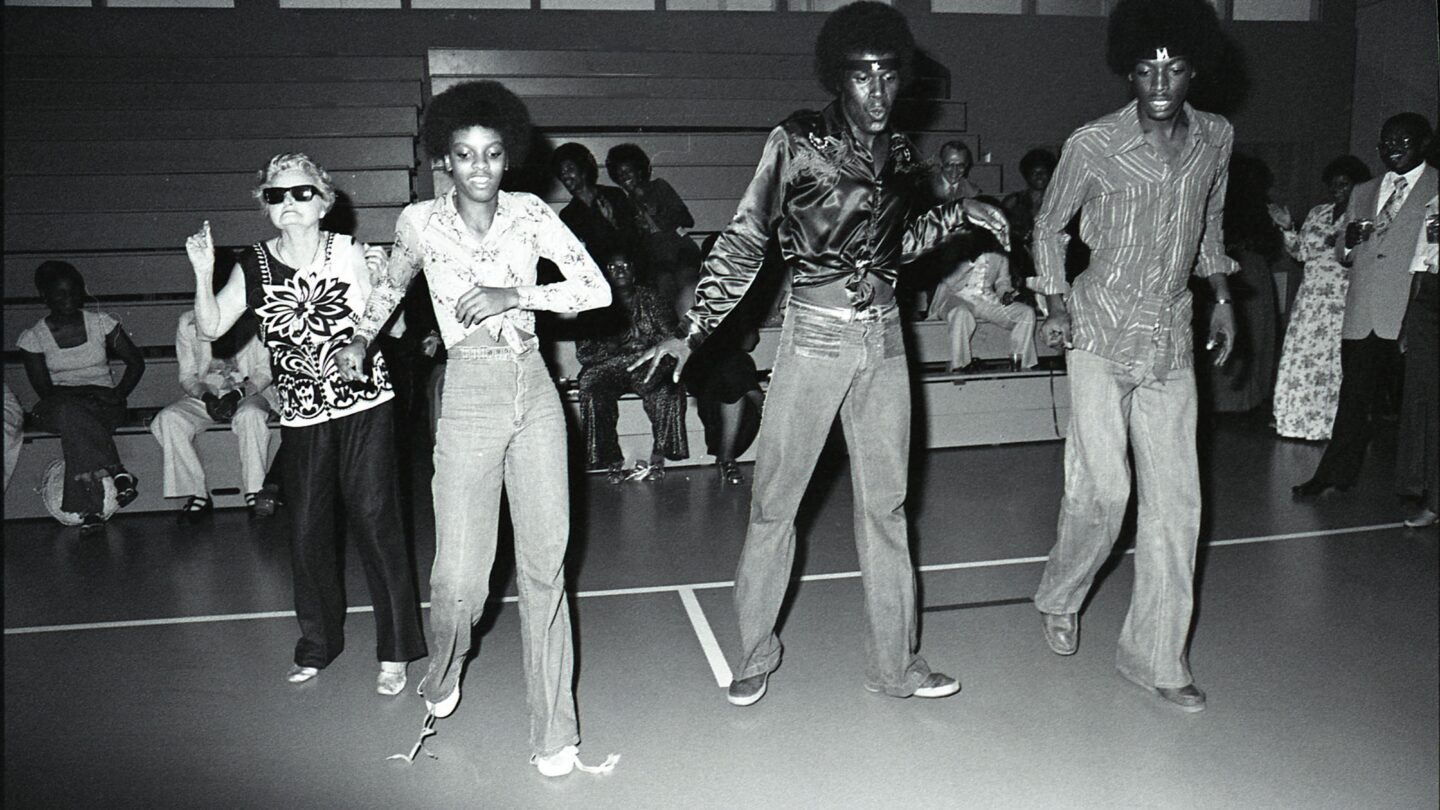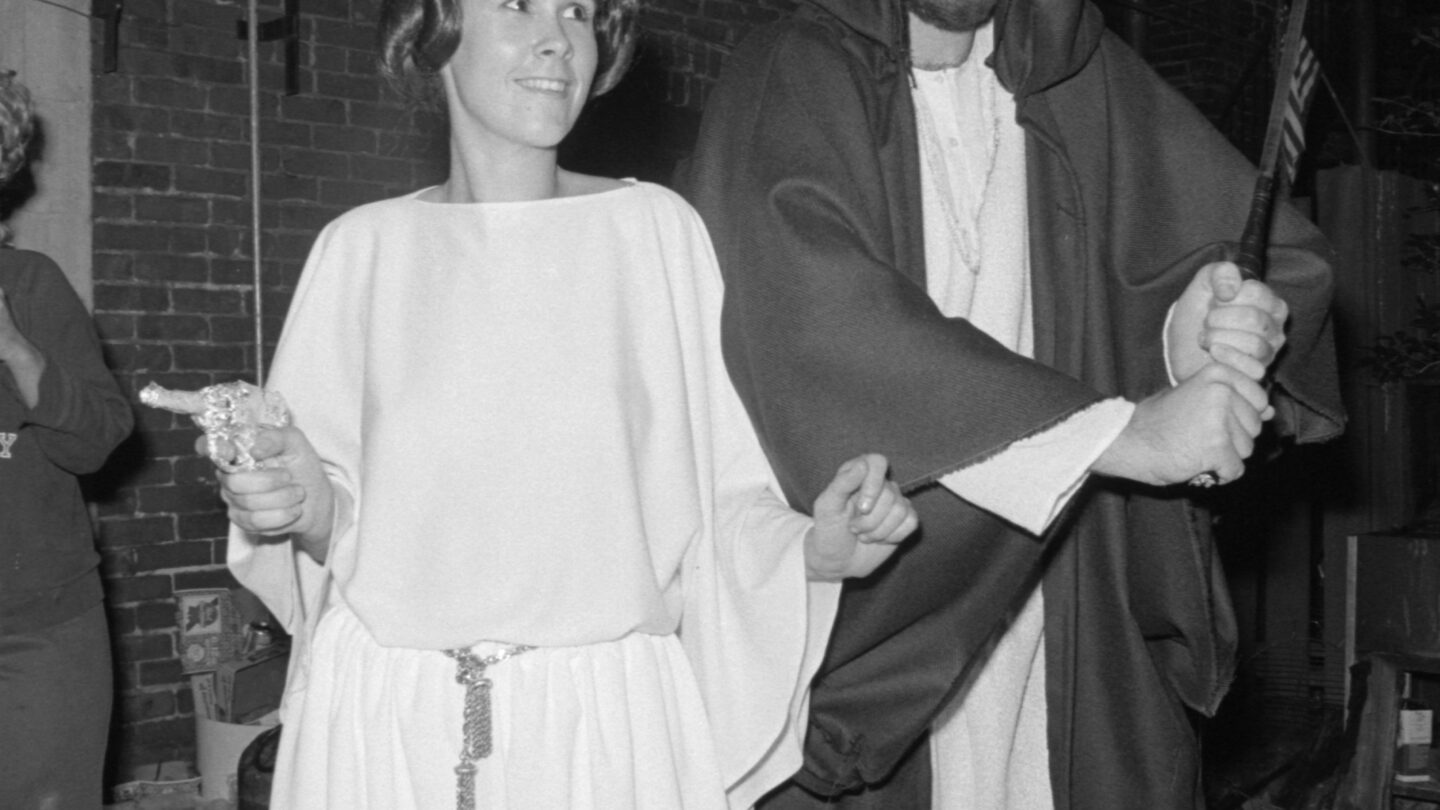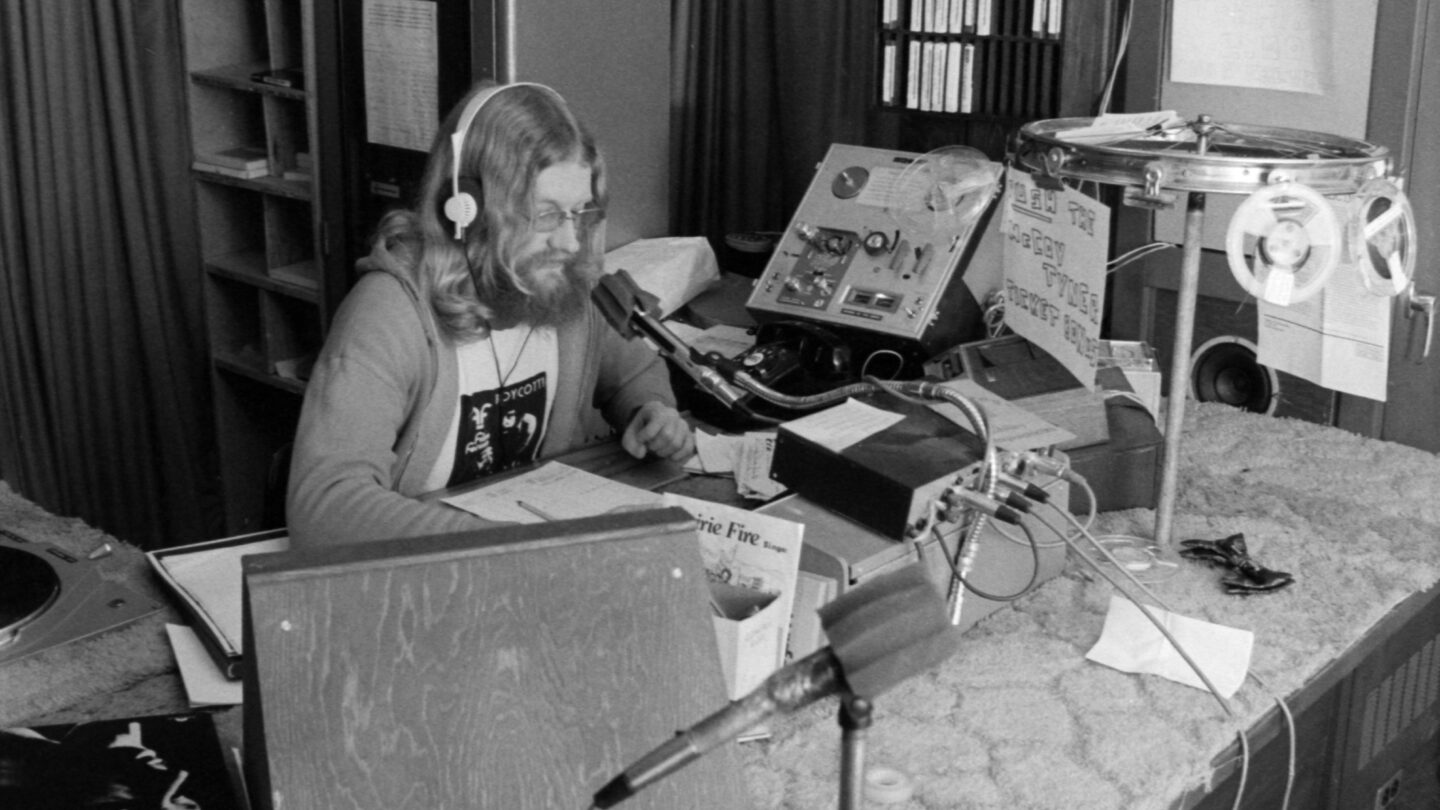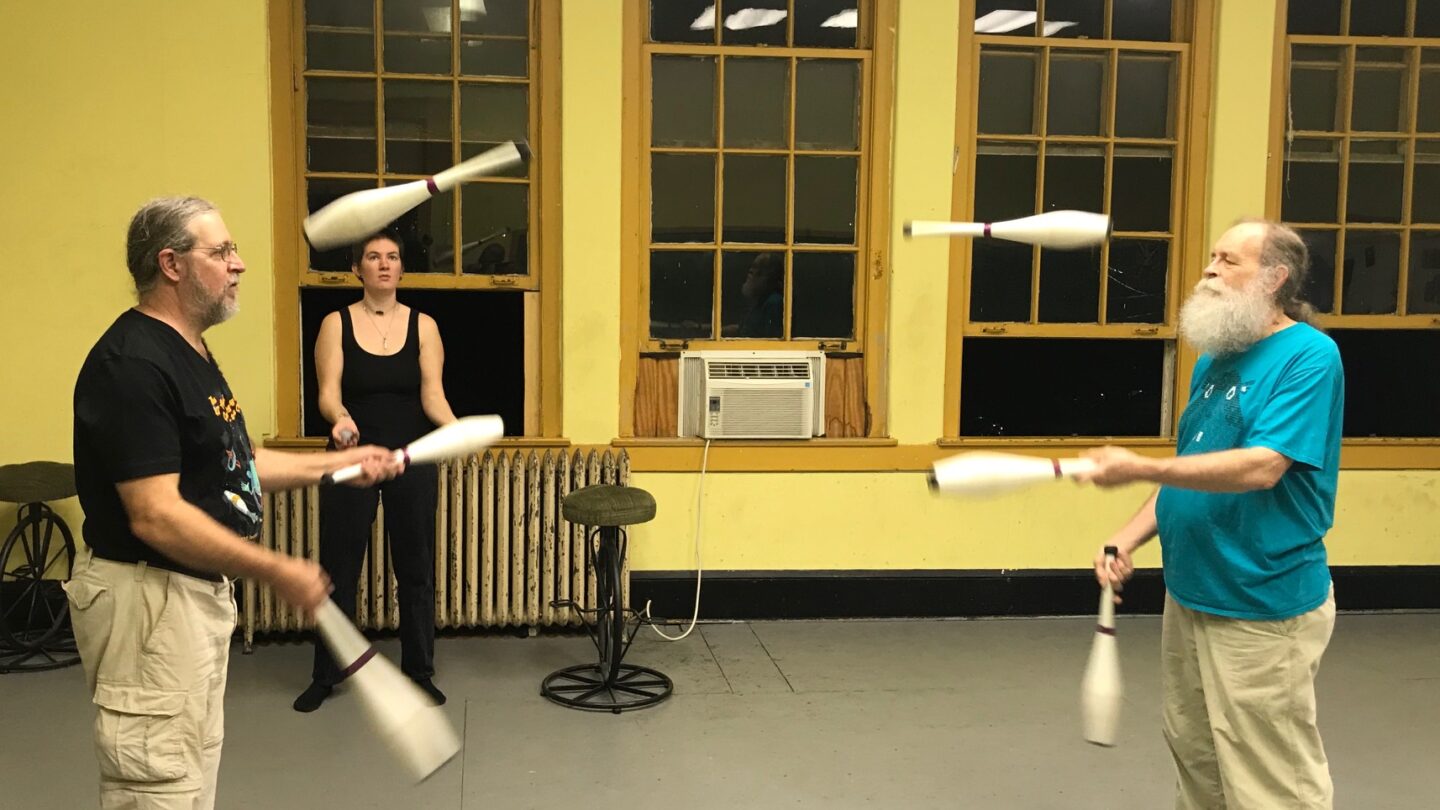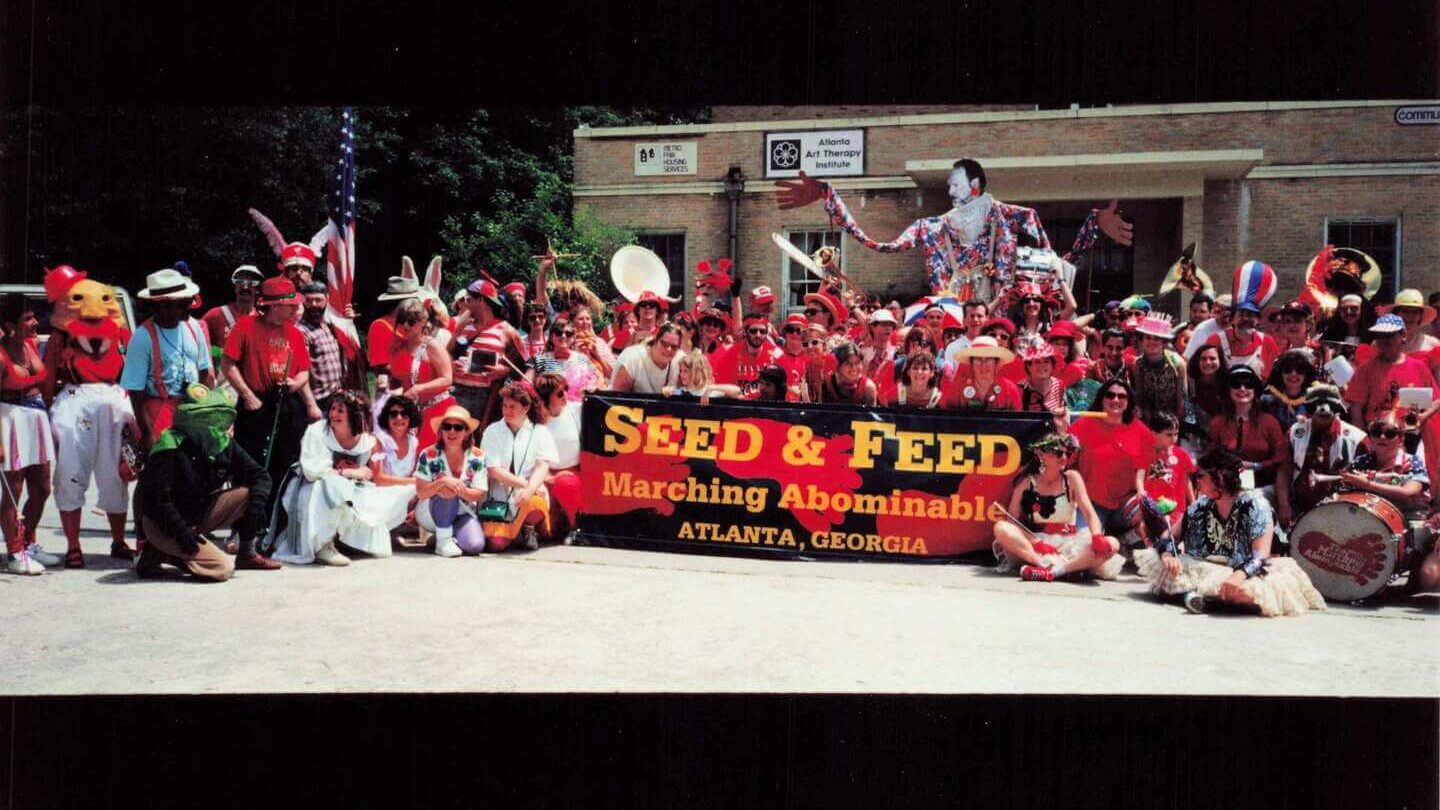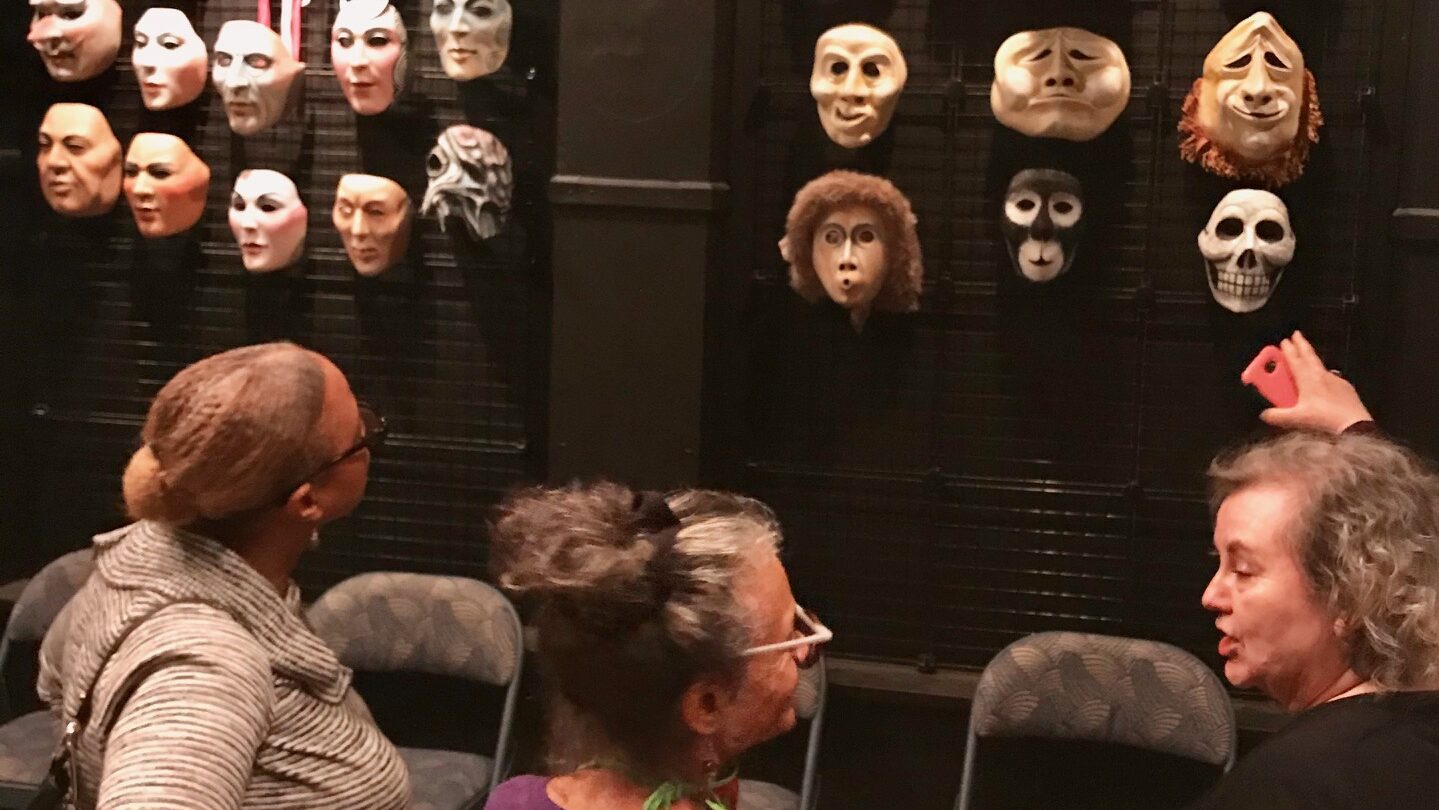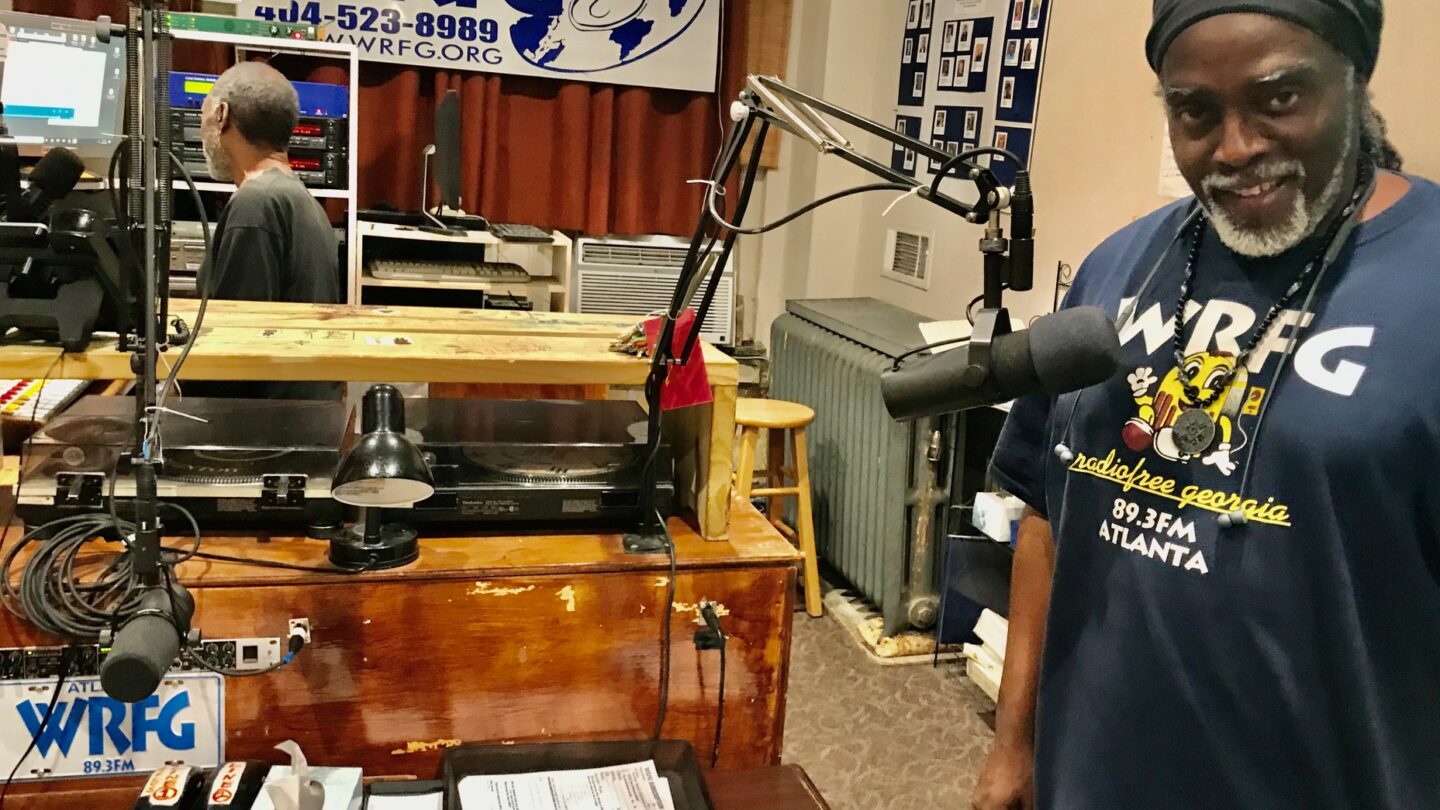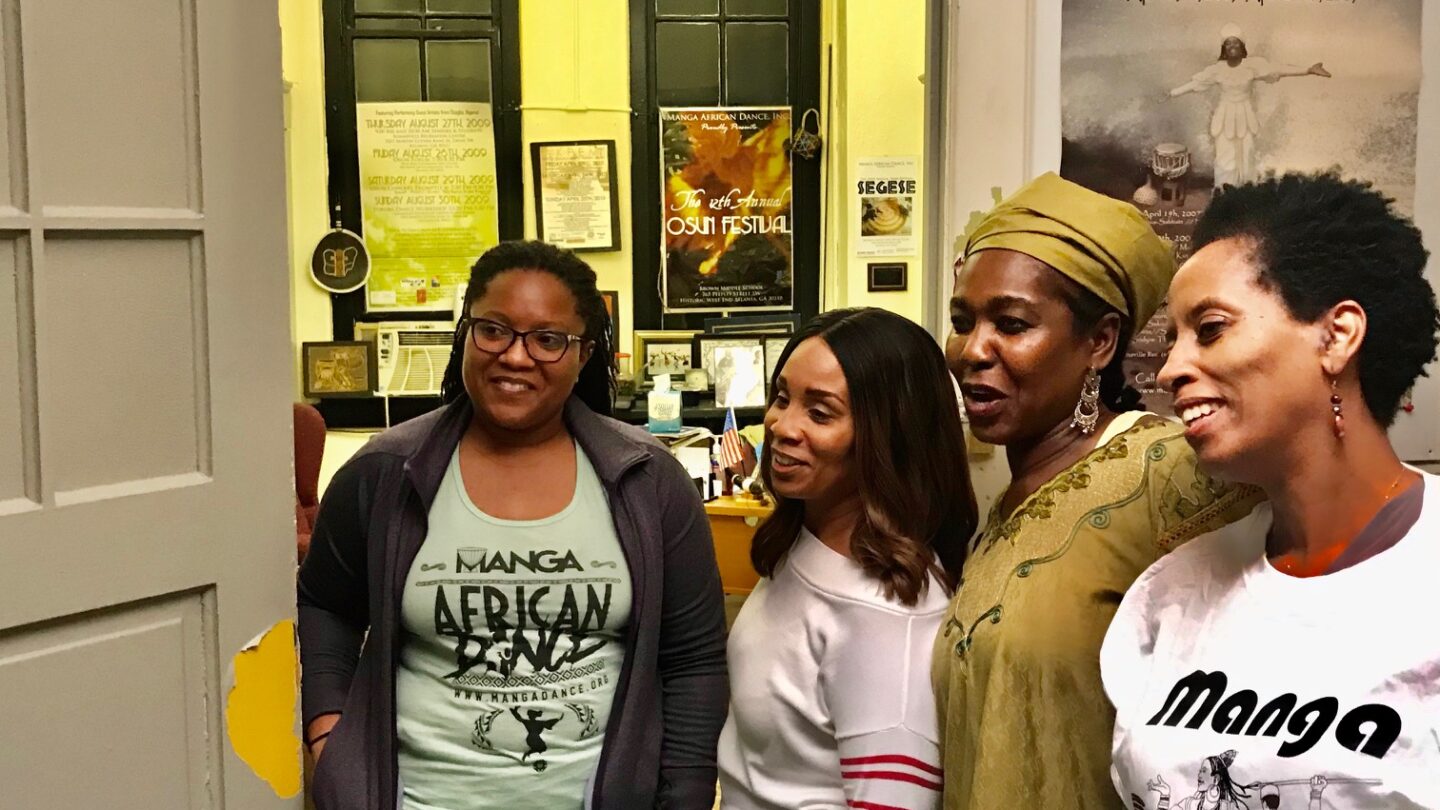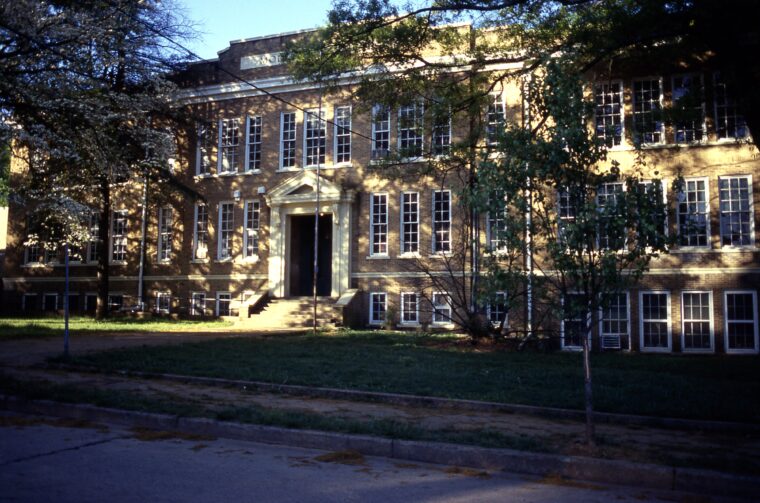
The Moreland School in 1986, shortly after it became the Little Five Points Community Center. Courtesy of Kenan Research Center at Atlanta History Center.
In 1982, the future of Moreland Avenue school was up in the air. The City of Atlanta had announced that it would be closing to elementary students, and nobody knew what was going to happen to a building that had been a beloved pillar of the Little Five Points and Inman Park neighborhoods for the last sixty-three years. It had the potential to become all sorts of things, each of which was connected to the artistic spirit – one promoter called them the Greenwich Village of Atlanta – of the neighborhoods that surrounded it. Moreland Avenue school could have been a center for community arts, a branch of the Alliance Theater, or the headquarters of Radio Free Georgia.[1] In the end, thanks primarily to the efforts of the Atlanta Jugglers’ Association, it became not one of these things, but an organization that was able to provide the services of all three to the neighborhood: Little Five Points Community Center.[2]
When Moreland Avenue school opened in 1919, it was a very exciting development indeed. Children living in the fast-growing Atlanta suburbs of Inman Park and what would come to be known as Little Five Points had been struggling with overcrowded schools for some time. The previous Moreland school had only been able to provide for about two hundred children in a neighborhood of nearly five hundred potential students.[3] Those who didn’t get registered quickly enough at their local school would have to travel miles out of their way to schools in other neighborhoods, a particularly daunting task in the early twentieth century, when most students walked to school.
After opening in 1919, the Moreland school remained important to the community and popular with its students, many of whom made treks back for class reunions well after they graduated (some who had attended Moreland in the 1920s were still meeting up as late as 1999).[1] Students competed in national choir competitions, designed their own museum exhibits, and once, memorably, planned an Easter Egg hunt in which the prize was a live white rabbit.[2] The Moreland school integrated slowly, only completing the process in 1970, thanks in part to confusion about teacher redistribution and the verdicts of multiple lawsuits filed against the City of Atlanta.[3]
The Moreland school remained open for ten years after it was integrated until, in 1982, it fell victim to a similar fate to many Atlanta schools during the late twentieth century; it was marked for closure thanks to a falling student population and decreasing funding as families moved outside of the city limits and into the suburbs. The historic building, already expensive to keep up, was getting to be more than the school board could handle. Luckily for Little Five Points, this didn’t mean the immediate loss of the building.
Since it began closing down local schools in the 1970s, the Atlanta School Board had offered communities an option to put the old buildings to use and help them avoid continuing maintenance costs in the process. Nonprofits and other community organizations had the opportunity to pay the Atlanta School Board minimal rent in exchange for taking care of building maintenance costs and keeping school buildings that would otherwise invite vandalism occupied. [1] Several such nonprofit bidders were interested in the Moreland Avenue school.
One of those bidders was Radio Free Georgia (WRFG), a local counterculture radio station that had been broadcasting out of Little Five Points since 1973 and, as the result of a decaying building and unpleasant landlord, was looking to move. Thanks to the Atlanta Jugglers’ Association, Radio Free Georgia learned about the closing Moreland School and its potential as a new home early on in the process. The Association had been using the school as a practice space since the 1960s, juggling on the front lawn in nice weather and in an empty classroom when Mother Nature pushed them inside. A Jugglers’ Association member who also worked with WRFG suggested that the radio station look into renting out the closing Moreland School.
Though WRFG was competing with both the Alliance Theater and the Little Five Points Community Arts Center for the building, they did have one slight advantage: Ebon Dooley. Dooley had been involved in the arts and community activism since he attended Fisk University in the early 1960s. He’d been working in Atlanta since 1969, when he moved to the city to begin managing Timbuktu Bookstore. Dooley went on to help establish the Dunbar Center, the Atlanta Center for Black Arts, and the Atlanta Arts Exchange. The Arts Exchange came in handy for WRFG. It was also housed in an old school building. Ebon Dooley's involvement gave him a clear understanding of how the city's processes worked, and helped ensure that WRFG won its bid to rent out the building and secured a ten-year lease on the former Moreland School.
That lease was the beginning of the Little Five Points Community Center. Radio Free Georgia didn’t need all of the rooms included in the spacious former school to host a radio show, so it started looking for tenants to share the space. The Atlanta Jugglers’ Association happily moved into the classroom they’d been using for decades, and they were soon joined by other community arts organizations like the Horizon Theater Company and the Euclid Arts Collective. These arts organizations, and future tenants like Manga African Dance, Gateway Performance Productions, The Seed & Feed Marching Abominable, the E. Collective, and Rising Phoenix T’ai Chi, have had impacts on Little Five Points, Atlanta, and far further afield. Of particular note is Art Papers, an international arts journal whose original print headquarters were (and are, until 2026) located on the second floor of the Community Center.
After ten years, Radio Free Georgia offered to buy the Moreland School outright from the Atlanta School Board, which readily agreed to their suggestion. Radio Free Georgia’s purchase of the Little Five Points Community Center ensured that it would continue to provide creative space to the people of Little Five Points and Atlanta for decades to come. And that it has. Little Five Points Community Center organizations have participated in community activities ranging from regular performances at the Center, to parades, to community outreach. The Community Center’s Shifalo Center has been featured in several films (like The Immortal Life of Henrietta Lacks starring Oprah Winfrey) thanks to its signature green tiles, a rare detail that’s key to the design of certain sets. Radio Free Georgia has even partnered with Atlanta History Center to record a fascinating series of oral histories that detail the experiences of Atlantans great and small between the first and second World Wars.
Annie Alexander talking about exchanging work for tuition free education at Spelman College.
Ruth Seabrooks, also known as Kate McTell, telling the story of her marriage to Blind Willie McTell, an Atlanta Blues pioneer.
E.B. Baynes describing his experience losing his home in the Great Fire of 1917.
James Moore talking about working as a Pullman Porter on an Atlanta to Chicago line in the early twentieth century.
Billie Harden, owner of the Atlanta Black Crackers talking about traveling through the Jim Crow South for baseball games.
Join Atlanta History Center in celebrating a place that has been and continues to be home to so many influential Atlanta organizations and learn more about them and our city’s history at Party with the Past on April 10, 2025.
Notes
[1] Maria Saporta, “Questions Surround Future Fo the Moreland School,” The Intown Extra, July 22, 1982, Subject File, Public Schools -- Georgia Moreland Elementary, Kenan Research Center at Atlanta History Center.
[2] “Transcript of Conversation Between John Schmidt, James Clark Jr., and Abdul Rasheed,” 2025.
[3]“Need for School,” The Atlanta Journal, January 8, 1917, Newspapers.com, https://www.newspapers.com/image/970919954/?match=1&terms=%22Mrs.%20George%20Obear%22%20AND%20%22Moreland%22; “200 Children Are Turned From Moreland School,” The Atlanta Journal, September 11, 1917, Newspapers.com, https://www.newspapers.com/image/970895251/?match=1&terms=%22Mrs.%20George%20Obear%22%20AND%20%22Moreland%22.
[4] “Transcript of Conversation Between John Schmidt, James Clark Jr., and Abdul Rasheed.”
[5] “Easter Egg Hunt,” The Atlanta Constitution, April 23, 1919, Newspapers.com.
[6] “Percentages: 43 Schools Affected By New Plan,” The Atlanta Constitution, January 11, 1970, Newspapers.com.
[7] Peter Scott, “Lease a City School… $1 Yearly - No Teachers,” The Atlanta Journal, September 15, 1976, Newspapers.com, https://www.newspapers.com/image/972416636/?match=1&terms=%22Spring%20Street%20School%22%20AND%20closing.


